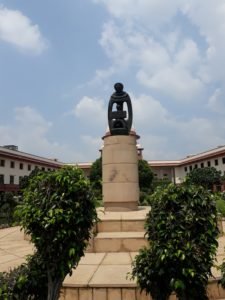Supreme Court of India related to a dispute regarding land acquisition and compensation, particularly for project-affected families due to coal mining activities. The case revolves around the role and responsibilities of a ClaimsCommission, initially established to determine compensation for several villages. The court addresses miscellaneous applications seeking extensions for the Commission’s work and directions on compensation and rehabilitation benefits, noting that the Commission had seemingly gone beyond the scope defined in a previous detailed judgment from 2022. The court clarifies that certain issues, especially concerning villages where reports were already approved, should not be reopened by the Commission. It further directs that a pending dispute regarding the calculation methodology for one village, Ratansara, be decided by the High Court of Orissa.
Right to Fair Compensation and Transparency in Land Acquisition, Rehabilitation and Resettlement Act, 2013 – Land Acquisition – Extension of term of claims Commission – Rehabilitation and Resettlement Policy – Determining R&R benefits of Villages for land acquired by the Mahanadi Coal Fields Ltd. – Claims Commission had submitted the status report showing the progress of the proceedings before it as on 27.06.2024, pursuant to the order passed by this Court on 23.01.2024 – Original Writ Petitioner i.e., Mahanadi Coalfields Limited (MCL) has filed a detailed reply to the Part-I report for Village Ratansara dated 27.06.2024 and to the progress status report dated 27.06.2024 and submitted by the Claims Commission, and stated that the Claims Commission had completely erred in its methodology of calculating the compensation for Village Ratansara and has also ignored the express directions of this Court given vide judgment dated 03.11.2022 passed in M.A. No. 231 of 2019 in SLP (C) No. 6933 of 2007 – Held that Apex Court in the judgment and order dated 03.11.2022 had clearly held that the villages in respect of which this Court has already approved the reports of the Commission determining the entitlements in respect of the 10 villages, the issues had stood finalized, and there could be no re-determination on the basis of the said judgment – Accordingly, it was directed in Paragraph 68 (iii)(c) that the Commission cannot reopen determinations based on change of policies of the State, given that benefits adjudicated by it based on factual determination has been crystalized and consequently, all the cases that have been adjudicated and approved by this Court cannot be reopened – However, the Commission appears to have entertained the cases filed by the land oustees of 10 villages, whose reports have already been finalized and approved by this Court – 21. Similarly, the Commission also appears to have travelled beyond the directions given by this Court in the said judgment dated 03.11.2022, by entertaining the issues raised by the villagers and land oustees of four villages with regard to R&R benefits – Only additional exercise which the Commission has to carry out is the differential payable after the re-determination in respect of all the elements i.e. the market value, solatium, and further interest – The Commission also appears to have entertained the issues with regard to the suitability of resettlement sites for shifting of the eligible land oustees, taking recourse to the order passed by this Court on 10.07.2017 – Commission should not have entertained any of these issues, when all the issues have been alluded and dealt with thoroughly by this Court in the judgment dated 03.11.2022 – Since, the petitioner MCL had already raised objections with regard to the Method of calculation, this Court vide the order dated 10.10.2023 had transferred the issue to the High Court of Orissa and the Writ Petition (C) being No. 39185/2023 in this regard is pending before the said High Court. As stated by the petitioner MCL, it has already made payment towards the compensation for the structure, without prejudice to its rights and contentions as regards the Method of calculation, however, has not made payment with regard to the compensation for the land, by stating that the said compensation shall be paid as per the order that may be passed by the High Court of Orissa in the pending petition – High Court shall decide the Writ Petition (C) being No. 39185/2023, as expeditiously as possible and preferably within three months from the date of receipt of this order – The MCL shall make payment towards the compensation immediately after the final judgment and order is passed by the High Court in this regard – 25. In the aforesaid premises, no further order for extension of the term of the Commission is passed.
(Para 20 to 25)
Mahanadi Coal Fields Ltd V. Mathias Oram
Supreme Court: 2025 INSC 22: (DoJ 03-01-2025)






